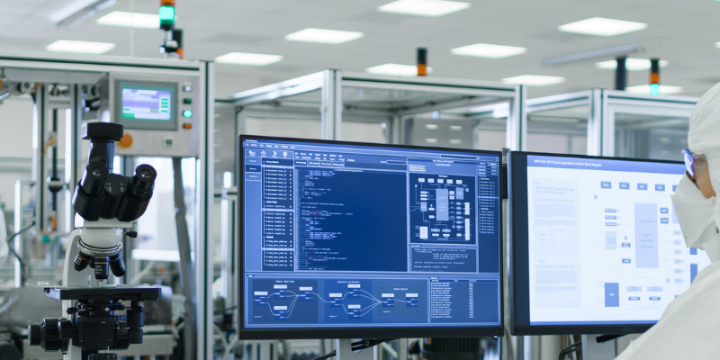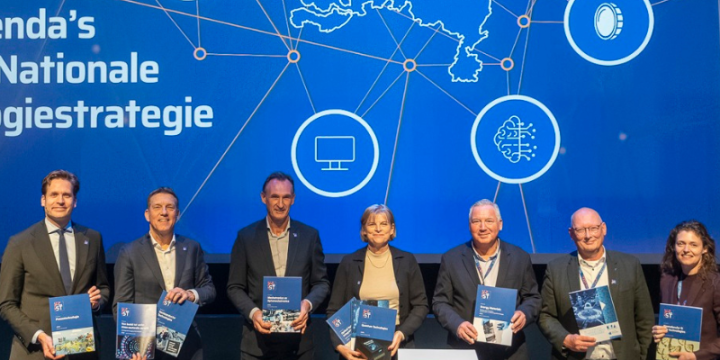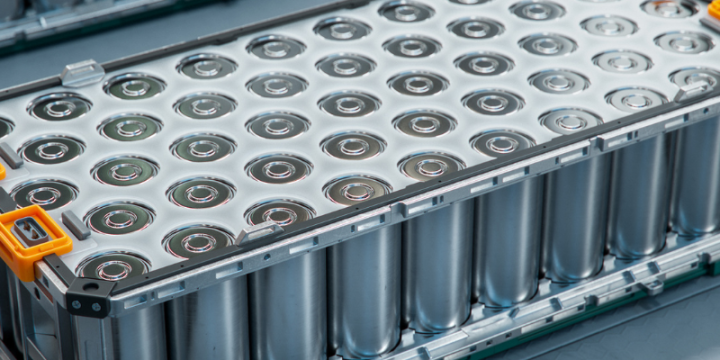With an unexpectedly large turnout of more than 200 participants from all walks of life from industry and knowledge institutions, Battery Day 2022, organized by RAI Automotive Industry, Holland High Tech and Battery Competence Center, was a great success. Among other things, the latest technologies, the challenges for recycling, the need for test facilities and the missing regulations were discussed.
It is high time to focus on electrification of the construction industry. The RAI Association therefore took the initiative for Battery Day 2022 on 10 May. The participants were pleasantly surprised with an informal, varied and informative program.
Not just batteries
The program started with a panel discussion. Tijn Swinkels, founder and technical director of DENS, says that his hydrozine aggregate is ready for the market. This aggregate works on the liquid hydrozine (formic acid) is emission-free and supplies power for, for example, a construction site in the city center or a festival. Places where you want to minimize noise and avoid emissions.
Bert van Mil of Urban Mobility Systems explains how his company is developing a solution together with the manufacturer (OEM) for the electrification of heavy duty equipment such as cranes and excavators. Van Mil says: “Electrification of construction equipment is desperately needed. Offering zero emissions helps to obtain tenders.”
Finally, panel member Willem Nieuwland of the American Hyster-Yale explains how his company started the development of zero-emission vehicles, such as forklifts that can lift sea containers, in the 'Big Truck Development Center'. “We won't make it with batteries alone. An electric crane cannot yet move containers continuously. So we are also looking at hydrogen fuel cell technology.”
Regulations still in their infancy
Questions for the discussion come naturally in the informal atmosphere. For example, RDW would like to know: “What are you bothered by and what is the need for regulations?” Van Mil of UMS would like clarity. “In experimental projects we come across that the legislator says: If it is not clear it does not exist and it is not possible. A dialogue is therefore necessary between the legislator and the manufacturer.” Swinkels of DENS adds: “Nobody has a hydrozine aggregate, so there are no regulations. We fall in between, you don't know when you're doing it right."
Focus on recycling
Recycling is an important aspect, which is still in its infancy in the case of heavy duty equipment. Johan van Peperzeel, battery collector, is concerned about the popularity of LFP batteries, an important type of lithium-ion battery. The residual flows are still worth little. The raw materials for the other type, NMC, are currently scarcer and therefore more expensive than those of the LFP batteries. That's why nobody wants to recycle LFP. “There are containers full of old LFP batteries everywhere. I want to share that concern. It is a European problem.”
Battery technology as an ecosystem starting point
After the discussion, Rutger van Poppel talks about the Battery Competence Center that started last year. The aim of this is to develop an ecosystem to collectively gather knowledge and competences in the field of battery technology in the Netherlands. As an independent party, the RAI Association is taking the lead in this, says Gerard Koning, Green Mobility program manager at RAI Automotive Industry NL: “It's about battery technology instead of the mode of transport as the starting point. If you want to represent that independently, we are the right party for that.”
Finally, Ronald van den Putten of TNO Automotive talks about the inventory of test facilities for batteries in the Netherlands. “All types of testing are available in the Netherlands, but capacity is an issue.” The public indicates that facilities to test recycling are highly desirable.
Reducing dependency on raw materials
The closing of the day is a Tech Talk, the TV show of Brainport Eindhoven. Presenter Tom Jessen gives the floor to three guests: Janet Kes from ARN, Jan van Meijl from VDL and Toon Ansems from TNO Automotive.
An important theme is the recovery of scarce elements from the batteries. Reprocessing the so-called black mass is desperately needed for the Netherlands, says Van Meijl: "There will be a shortage of materials, so that in ten years we may not even be able to get batteries." Kes van ARN adds: "It would be nice to process these substances, to develop an ecosystem in the Netherlands in the long term where you keep the materials at your disposal."
Zero percent emission
The message from the Tech Talk is: collaboration. “The Netherlands is not an island,” says Kes. Koning van RAI says that the next Battery Day may be organized internationally. He looks back on a successful meeting: "I like the fact that there is an awareness among those present that a total solution is needed for electrification of the construction industry. You are not there with just a battery-powered vehicle. The goal is zero percent emissions.”





